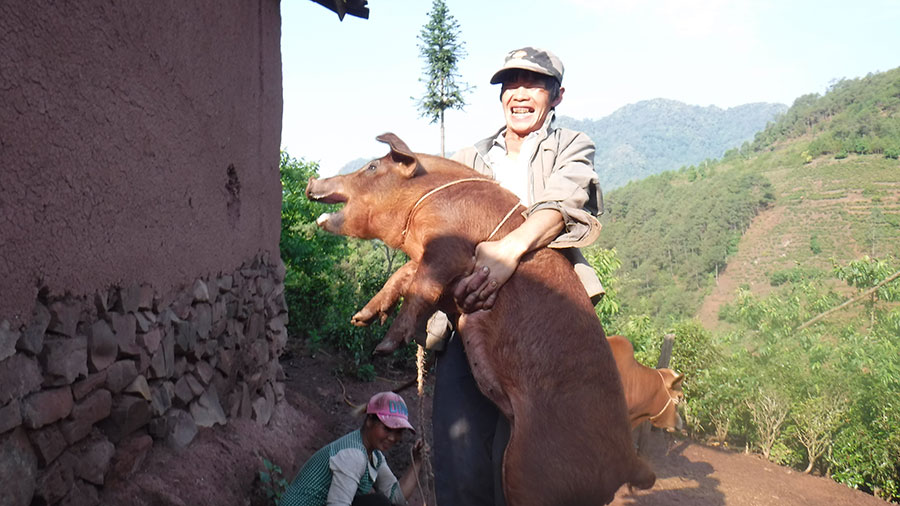Inclusive education for disabled children through photography
By Liu Wei/Cao Pengyuan | China Daily | Updated: 2018-01-17 07:44

China is speeding up its reform of the special education system. In 2015, the Ministry of Education confirmed 37 regions and districts as experimental areas for national special education reform, supporting them with policy, finance and special projects.
In May 2017, China released newly revised regulations on educating people with disabilities, making general education the main method, with special education complementary. This means that there will be more disabled children attending regular schools, with special education teachers providing assistance to them.
Yet challenges remain. Teachers from normal schools often express concern over the extra responsibility of taking on disabled children.
"A little accident that hurts these children will result in serious complaints and warnings from their parents. You know, it is quite normal for children to run around, but what if the disabled children get hurt?" says one teacher, wishing to remain anonymous.
From 2009 to 2015, Save the Children managed to pilot inclusive education projects at primary schools in Sichuan and Yunnan provinces and the Xinjiang Uygur autonomous region, transforming old special schools into resource centers that train teachers and parents. Now it is working to encourage more teachers from special schools to reach out to disabled children in regular schools.
Wang Xingxing says that teachers should empower students with respect and support, and recalls the support she had at school one winter's day.
"The snow was nearly knee-deep. My PE teacher worried about me so much that he proposed to carry me home on his back. But my class director offered to walk me home. So we stumbled all the way back home hand-in-hand, taking much longer time than usual."
To eliminate discrimination and raise public awareness, Wang calls upon not only teachers but also people like Liu to run multidisciplinary classes in schools.
Wang says that in the future disabled children and able-bodied children sitting in the same classroom will become common.
Yongzhi's father was once pessimistic about his son's future, but after the exhibition organized by Liu where he saw his son's pride in photography, he is now upbeat. After the exhibition, Liu also asked the students about their dreams and got various responses-from wanting to be a teacher to a soldier.
Liu is inspired by their ambition.
"Whether disabled or not, their dreams are pure and lovely. Every dream needs to be respected. So I wish to organize a photo exhibition tour for them in the hope that one day their photos and stories will travel around the globe."
























